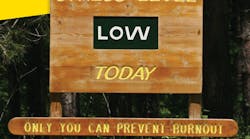What burnout taught me about the career I still love
For as long as I can remember, dental hygiene was my home. I built a career rooted in compassion, patient connection, and clinical skill. I thrived knowing I was giving my family the time they needed while still making a difference in people’s lives.
But somewhere along the way, I realized that loving my profession did not mean ignoring the parts of it that weren’t working. Burnout in dentistry is not a personal flaw; it’s the result of a system built to value production over people.
When I first left clinical hygiene back in 2018-2019, it wasn’t because I fell out of love with patient care. I left because I craved the chance to use my skills at the top of my scope, without being stifled by outdated policies and restrictive red tape that didn’t truly serve the patients it claimed to protect. I took a leap into a sales role, hoping it would offer me the growth and autonomy I was missing. Instead, I found broken promises, deeper frustration, and work that felt emptier than ever.
I came back to hygiene, first working in two practices that quickly showed me what misalignment feels like, and then landing in an office that finally respected my autonomy and allowed me to practice alongside the dentist in a way that felt meaningful. It was everything I wanted … until Covid hit.
After being laid off, I temped my way through uncertainty. It was through temping that I found my current practice, a space where I’ve been for five years, where my autonomy is honored, my patient care models are respected, and my growth is supported. It feels like home. But if there’s one thing I’ve learned on this journey, it’s that no matter how much you love what you do, if you don’t have mentorship, leadership, or a clear, values-aligned path forward, you will burn out.
Mentorship that matters
I’ve been lucky to have some incredible mentors. But the ones who made the deepest impact were not the ones giving me step-by-step advice. They were the ones who taught me to listen to myself, to recognize that it’s okay to feel frustrated, stuck, or disillusioned, and that it’s my responsibility to interpret those emotions and act on them.
Too often in this profession, people project their fears, limited beliefs, and unhealed experiences onto others. Real mentorship is about creating space for people to figure out what feels right for them, not pushing outdated definitions of success onto the next generation. That’s why I’ve made it part of my mission to support others in this field, to mentor when needed, to share my story honestly, and to help normalize the fact that your career doesn’t have to look like anyone else’s.
The skills that carried me beyond the operatory
My dental hygiene career gave me far more than clinical skills. It taught me empathy, communication, business acumen, practice management, marketing, and leadership. I learned how to read people, solve problems, and lead with compassion. Those same skills are what carried me into speaking, consulting, content creation, and now, on a journey toward law school.
Sustainable dentistry is my niche and with it comes the part of sustainability most people don’t talk about—self-preservation. So, find the spaces where dental professionals feel valued, supported, and empowered to grow in whatever direction they choose. There are so many brilliant dental hygienists who want to lift you up, you just have to put yourself out there first.
What I tell anyone who feels burned out
If you’re in the thick of burnout, know this—it’s not your fault, and you are not alone.
Before you make a major decision, check in with yourself and ask these questions.
• Is it the profession itself, or is it your current environment, culture, or leadership?
• Have you tried temping? Switching practice settings? Reducing your hours?
• Have you surrounded yourself with people who help you look inward, or just those who keep you stuck in burnout culture disguised as community?
There is more than one way to succeed in dentistry, and you have permission to redefine it for yourself.
The changes our industry needs
We need workplace cultures that respect providers as people, not just producers.
We need real mentorship, leadership opportunities, and professional development that extends beyond clinical skills.
We need open, honest conversations about mental health, workload, and sustainable practice models.
We need to stop treating burnout like a personal weakness when it’s the predictable outcome of a system built on outdated priorities.
This profession taught me everything I needed to build the career, voice, and vision I have now. It’s where I found my people, my resilience, and my purpose. And it’s where I’ll always advocate for those who feel stuck, unseen, and ready for something more.
About the Author

Brittany Cox, MA, RDH
Brittany Cox, MA, RDH, is a sustainable systems strategist and policy architect guiding health care toward a planet-first future. With a background in oral health promotion, leadership, and coaching, she helps dental practices and institutions cut waste, improve care, and operate more sustainably. Now studying environmental and health law, she’s expanding her impact through policy. Known for turning complex challenges into clear strategy, Brittany empowers leaders to do better by their patients, people, and the planet. Brittany can be reached at [email protected].


